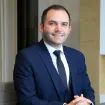- within Transport topic(s)
- within Media, Telecoms, IT, Entertainment, Insolvency/Bankruptcy/Re-Structuring, Food, Drugs, Healthcare and Life Sciences topic(s)
Year-in-review
In May 2023, the Kingdom of Saudi Arabia ("KSA") launched two Saudi mission specialists, Rayyanah Barnawi and Ali Alqarni as part of Axiom Mission 2 (Ax-2) team of astronauts aboard a SpaceX Dragon spacecraft.
One year forward, May 2024, the Saudi Public Investment Fund (the "PIF") launched the Neo Space Group (NSG) to boost Saudi Arabia's satellite and space industries. According to NSG's inception plans, it seems created to become the national medium for the satellite deployment, supporting commercial satellite space operations. NSG is set to invest in localization, technology, start-ups, in addition to knowledge in the space and satellite sector in Saudi Arabia1.
This development came shortly after the World Economic Forum signed an agreement with the Saudi Space Agency (the "SSA") to establish a "Centre for the Fourth Industrial Revolution" focused on space: The Centre for Space Futures2. The Centre for Space Futures is set to open in autumn 2024 and will be hosted by the SSA with the aim of facilitating public-private discussions on space collaboration to accelerate space technologies3.
Developing the aerospace sector is in line with PIF's own strategy to unlock the potential of promising sectors in Saudi Arabia. This push is in turn in line with Vision 2030 which is vastly pushing for economic diversification and cross-sector developments in areas including space and earth research, space missions, aeronautics, education, etc... In this context, the Saudi space industry is keeping up the momentum with the latest collaboration the SSA and NASA inked a significant agreement on July 15th, 2024.
Agreement between SSA and NASA and Legal Framework
The agreement between SSA and NASA is formally dubbed the "Framework Agreement Between the Government of the United States of America and the Government of The Kingdom of Saudi Arabia on Cooperation in Aeronautics and the Exploration and Use of Airspace and Outer Space for Peaceful Purposes" (the "Framework Agreement"). The Framework Agreement is a bilateral instrument aiming to elaborate the legal framework for the use of outer space for peaceful purposes and facilitates cooperation between both governments to exchange expertise and the develop joint programs. This is meant to boost civilian space exploration and research cooperations in addition to strengthening the space-related strategic partnership between Riyadh and Washington4 by paving the way for the required legal framework. The Framework Agreement is not a fry cry from principles set forth in international space treaties, as it complements the principles of the Artemis Accords, previously co-signed by the USA and the KSA, reflecting both countries' commitment to transparent, safe, and responsible space exploration.
It is also worth highlighting that, after committing to the Artemis Accords, KSA effectively withdrew from the 1984 Moon Agreement which indicates the KSA's resolve is set on peaceful and sustainable space exploration and exploitation as the Artemis Accords' signatories commit to peaceful space non-military exploration and deconfliction of activities as signatory nations commit to preventing harmful interference and supporting the principle of due regard, as required by the Outer Space Treaty. Artemis Accords also guarantee transparency, Interoperability, and inter-commitment to emergency assistance to guarantee full cooperation between signatories5.
Meanwhile, Saudi space sector's national regulations remain under development. The Saudi space law has not been published yet but a draft Saudi space law has been circulated for public opinion on 06/11/2022 but remains to be officially passed and implemented6.
Conclusion
KSA is placing necessary attention to the necessary legal frameworks on both the national and international levels, mirroring its ambition to regulate and sustainably exploit the aerospace sector through investment in technology and know-how.
Footnotes
5. A general introduction to Space Law in Saudi Arabia | BSA Middle East Law Firm (bsabh.com)
The content of this article is intended to provide a general guide to the subject matter. Specialist advice should be sought about your specific circumstances.


